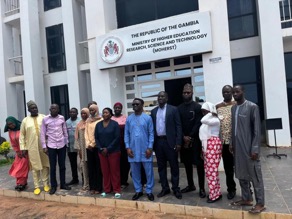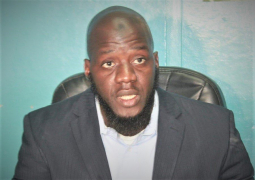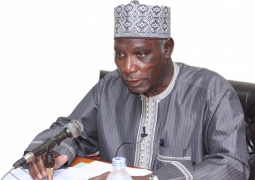
MoHERST has initiated this transition to enable Madrasa students to advance into tertiary institutions or pursue vocational skills after completing their basic and secondary education, fostering self-sustainability for graduates.
Permanent Secretary Yusupha Touray in his opening remarks said students of Madrasa/ Majalis are the business of the government because as Gambians they have the right to be skilled and educated to take care of their own welfare and that of the state.
Dr Touray pointed out that it is the responsibility of the state to cater for and include Madrasa education into the formal educational system, to prevent limiting their capacity to only teaching (Oustas) or being imams. Rather, they can also become engineers or auto mechanics for self-sustainability and state development.
Consultant, Mohammed H. Loum, in his statement, said the madrasa education sector accounts for 20% of school-going population in The Gambia. “MoHERST is the main beneficiary of the Rise Project and the main objective of this consultancy according to the terms of reference is to identify critical gaps at Senior Secondary Education sector,” he said. “Once we have identify those gaps we will be able to design a comprehensive strategy to guide the process of integrating students from the madrasa sector into mainstream of tertiary and higher education, with a focus on Sciences, Technology, Engineering, and Mathematics (STEM), apprenticeship and we are also thinking about entrepreneurship.”
Loum finally concluded by saying that the project has a duration of four months and by October, they will be embarking on a school survey in all operating 76 schools registered by Amana. He further reassured the Madrasa that, the initiative is not to change their educational system but rather to improve and inculcate diversity within the Madrasa educational system for its students to speak both Arabic and English fluently upon graduation as other countries. He also thanked the government and MoHERST for their dedication and support to strive for development, peace and democracy in the Gambia.
In his keynote address, MoHERST minister Prof. Pierre Gomez appreciated President Adama Barrow for his directive to ensure that “education must be inclusive, education must help Gambians to get the skillsets in the right enlightenment to take charge of their destinies”. While in the process of achieving this feat, he said, nobody should be left behind, especially students from madrasa as “it will be social injustice after grade 12, no alternative is provided for Madrasa students”.
In another development, MoHERST launched its Gender and Policy for Tertiary and Higher Education in The Gambia. Consultant for this project Dr Aminata A. Sillah said the policy is work to set gender equality in all aspects of the work of the ministry, thus ensuring that it aligns with international standards and best practices in promoting gender equity and also inclusive within the Gambia Higher Education Ecosystem.




